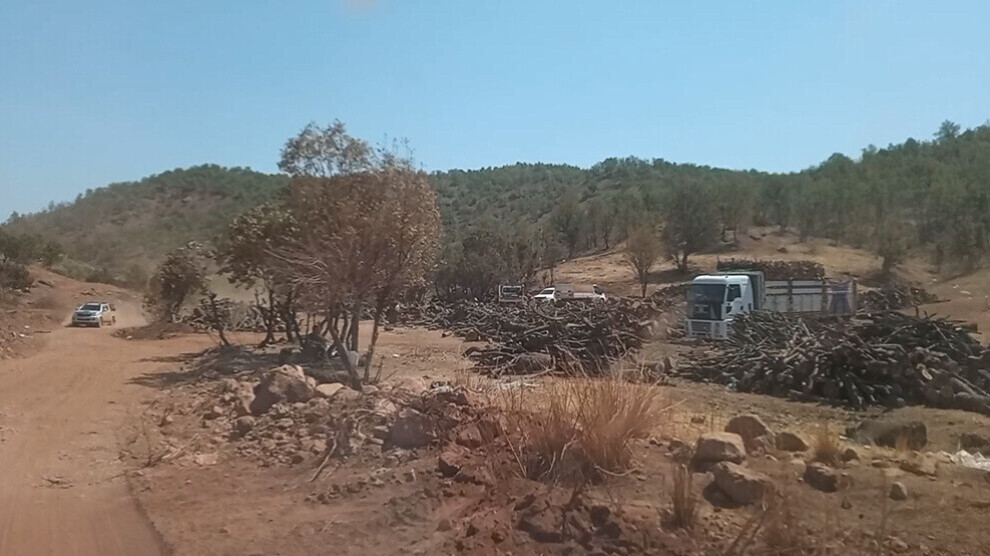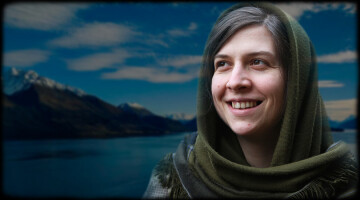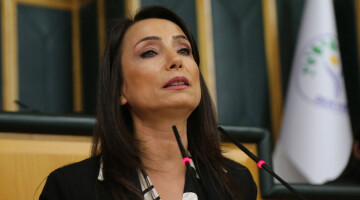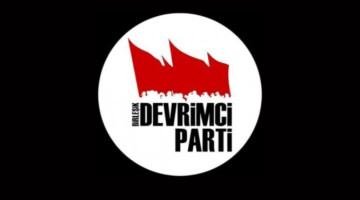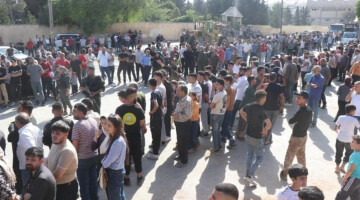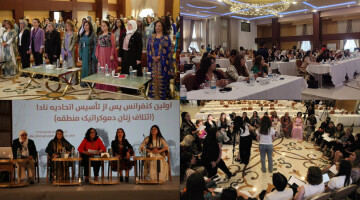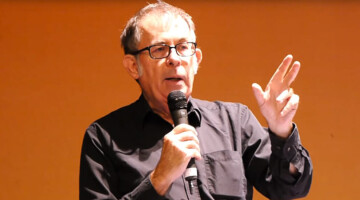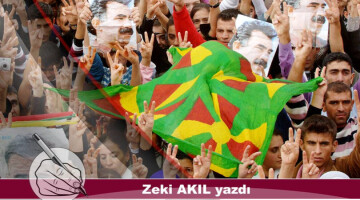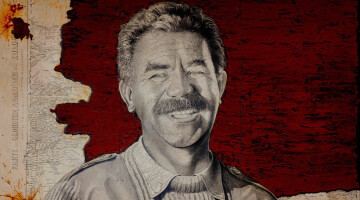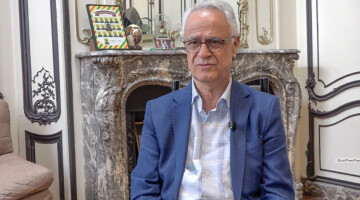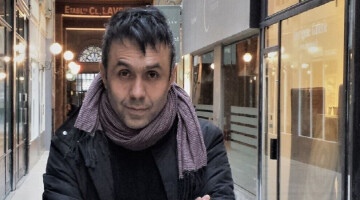Zeki Irmez, a DEM party MP, spoke about the massive ecological destruction that is being carried out by the Turkish state and the private sector in North Kurdish, and said this as an expression of "colonialism".
The formerly crystal-clear water in the Nerdüş Gorge in the northern Kurdish province of Şırnak (Şirnex) is black and contains lumps of coal, and the forests in the Beytüşşebap (Elkê) district there are being cut down by paramilitaries. The destruction of Şırnak's unique nature is in full swing, particularly in the "temporary military exclusion zones". While the population living or working there is not allowed to enter the areas, illegal mining and oil exploration is taking place.
In this interview with ANF, Zeki Irmez, the DEM party's MP for the province of Şırnak, answered questions about the situation.
The images of the black water in the Nerdüş Gorge and the lumps of coal coming out of the taps went viral on social media. What is going on in Nerdüş?
The Nerdüş stream was actually clean enough to drink from. People could drink the water, give it to their animals, irrigate their vineyards and gardens with it. All of this is no longer possible today. The Nerdüş flows through many villages until it reaches the Tigris. It was the source of life for everyone. As to how we got to this situation, there is an area we call 6 Ocak. This area belongs to Bölünmez Holding. The wastewater from many quarries is pumped into the Nerdüş through a pumping system. The water reservoir into which the river flows belongs to the municipality of Şırnak. The municipality would have to build a sewage treatment plant there or set up a coal mine filtration system. Inspections should be carried out. Of course, the trustees did not do that. Since the water comes from the coal mines, it is contaminated with chemicals and is black. It cannot be used for anything. No living creature can live in this water. Yet this dirty water is being sent to Şırnak. The Bahçelievler neighborhood is fed by this water. The same is true of the Maden settlement. We have seen footage taken by residents. The water from the tap is black, muddy and contains coal particles. In response to a parliamentary question, we received a response from the ministry saying that fines had been imposed. So many fines for this company, so many fines for that company... The fines imposed were as high as the revenue from these coal mines in a few hours. There is no deterrence and the same thing keeps happening.
Colonial law prevails
Şırnak has faced multi-faceted ecological destruction in recent years. What role does coal mining play in this?
The coal mines were under the control of the Turkish Coal Company (TKI) until 2001. Then the TKI was closed. After that, the coal mines were fully transferred to the Provincial Special Administration through royalties (contracts that regulate the transfer of part or all of the operating rights of mining license areas to third parties), which then awarded them to companies through tenders. There were also companies that came from outside to mine the coal, but mostly local companies in Şırnak received the operating licenses. In this system, the Special Administration receives a certain percentage. The Cûdî region is being plundered in this way. There are holes everywhere. After 2016, the operating licenses of almost all coal mines in Şırnak were awarded to Süleyman Bölünmez, of Bölünmez Holding. Some mines are also operated by subcontractors. The mines operate on an open system. There are no rails. They open the coal mine and use dynamite. The mines are very deep. The workers work in an environment where there is no safety at work and there have already been deaths. The way they work violates the Mining Act and the law as a whole. When we look at all this, of course the coal mines play a very big role in ecological destruction. Not a single step is being taken by the ministries against it. The law that is being applied here is colonial law. This must be made known.
The deforestation and destruction of forest areas has also become a topic of discussion in recent days. What is the situation in this regard?
Some places are classified as village hamlets, others as inherited land belonging to private individuals. Some of the places are also defined as state property, but in general they are village hamlets. Even if they have no title deed. Regardless of the nature and ownership of the land, forested areas are destroyed. This is clearly in violation of the law. Of course, excuses are found doing this. Two years ago, trees were felled in an area that we owned. We contacted both the Provincial Directorate of Forestry and the Regional Directorate in Urfa (Riha) to stop the deforestation. The Provincial Directorate of Forestry gave us a very absurd answer. They said that they were carrying out rejuvenation of the forest structure in the forest area. There can be no such justification. Forest areas are being cut down against the consent of the owners and a very small amount, alms, is paid as compensation. Two years ago, the rightful owners were paid an amount of 400-500 TL per trailer. However, when the trees are sold, the price is set based on tons. At that time, a ton of trees cost 1500-2000 lira. A tractor can transport two to three tons of trees. So it is the most terrible exploitation.
The role of the village guards
The deforestation in Botan is taking place with the help of the village guards. What can you say about this?
The pictures of the trees being cut down and loaded onto tractors are from Komate. The felling took place in the forest area adjacent to the village of Andaç. Just above the road to Beytüşşebap, there is an area we call Xabur 2, it is near there. When I went to the village of Andaç on the eve of the Eid al-Fitr, the villagers told me that the village guards had come and met with them. The people said that they now want their forest area to be destroyed. They said it was their habitat, as well as their economic livelihood. They feed their animals from it. Despite all these objections, the village guards said to the villagers that they will cut down these trees whether they agree or not, and that they will give them the money. They said that the state had given them a direct order on this matter. After that, the villagers supervised the clearing so that when the cutting was mandatory, at least some of us were there and there was no complete looting. Unfortunately, a real massacre of the forest is now taking place there. Our MP, Newroz Uysal, also recorded a video. There was a dispute between the clearing workers. The village guards have been directly or indirectly involved in these clearings for years. A nature massacre is taking place in the region under the guise of "security" policies. The role of the village guards in this cycle is not surprising. Each fulfills his own part of this mission.
Depopulation in an ecological sense
You mentioned that environmental destruction and “security” policies have merged into a profit network. Could you explain this in more detail?
After 2016, the AKP-MHP government introduced a new “security” policy for the region. There is a concept of occupation and depopulation in relation to the region. This approach has not only a social and economic component, but also an ecological one. This is especially true for Şırnak. We see this very clearly. There is a real massacre of nature. Both in Cûdî, Gabar and Besta. The places where the trees are cut down change from time to time. At the moment, most of the trees are cut down in Beytüşşebap, but one or two years ago the area around Besta was the focus of deforestation. The Mezopotamya news agency published satellite images of the area. It was very clear to see the extent of the overexploitation. Last year the focus was on Gabar. This year, it is the side of the Cûdî that falls towards Silopi (Silopya), the area we call Bilika, as well as Komate in Beytüşşebap.
The AKP-MHP government is aiming at the military, political, social and psychological collapse of the region. Unfortunately, ecological destruction is also a part of this subjugation plan. Of course, this does not only apply to Şırnak. Bitlis (Bedlîs), Bingöl (Çewlîg), Dersim, Mardin (Mêrdîn) and Amed are also affected by complete deforestation. This is justified by the destruction of hiding places and refuges. The state itself says that the places that cannot be deforested must be burned down. So the policy is clearly going in this direction. This is one of the main reasons for the burning of the forests in Şırnex. It is summer. We know very well that the areas that have not been cleared are being burned, but unfortunately that no longer surprises us. This has been the practice for a long time.
The region is being dug up for oil exploration
Could you say a few words about the oil exploration work?
Yes, of course. There is currently heavy exploitation on the Gabar line. Both the clearing of forest areas and the construction of roads to the sites of overexploitation are linked. The villagers report that, for example, the water sources have dried up in some places. They say that they can no longer water their gardens because of the drilling. Cûdî is riddled on both sides by coal mines and oil exploration activities. In Besta, especially on the Dihê (Eruh) side, on the Herekol side, forest areas are being cleared. These areas have been declared "special security zones", i.e. military restricted areas that cannot be entered or left. This is the status of all areas. It is not allowed to enter the area. But if we look at who is prohibited from entering the areas, then the background becomes clear. Because for those who cut down the trees, for example, it is not prohibited. Oil exploration companies can also easily go to these areas, drill and do their work. MTA employees can enter the region quite comfortably. So there is no ban on them. But for nomads, it is a restricted area. They are also restricted areas for people who want to travel to their villages or water their gardens. For example, if you want to go to Cûdî, I am talking specifically about the region on the Şırnak side, you cannot take a step without permission. Who issues the permission? The military police. They do not give permission to everyone. Even in the 90s, there was no such policy. There were many protests. Last year a march was organized by civil society organizations and environmentalists from the West. As for the legal dimension, the Şırnak Bar Association filed criminal charges on all these issues. Individuals have filed criminal complaints. But there are no consequences. There is an order not to investigate. You cannot achieve a result on a legal, political or social level. That is why we say that colonial law is being applied here. Both against nature and against society, against everything that belongs to this geography. This situation is, of course, linked to the Kurdish question. As long as the Kurdish question is not fully resolved, we will unfortunately be faced with such practices.

